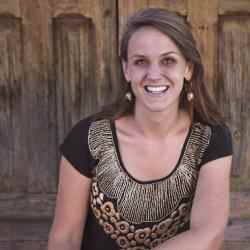Introduction
Geert has pioneered a culturally sensitive and community-based mental healthcare system for refugees and migrants in Europe.
The New Idea
Geert is broadening the support network of refugee and migrant families by training and mobilising professionals working closely with refugee and migrant children. She has created a standardized training program to help community professionals become more attuned to both the cultural differences of diverse populations and the psychosocial aspects of migration.
To break-down the barriers preventing refugees and migrants from accessing mental healthcare, Geert has created an outreach methodology that reconciles conflicting cultural frameworks about wellbeing between host cultures and refugee and migrant cultures. Acting as an intercultural and mediating organisation, Solentra’s unique PACCT methodology is a culturally comprehensible, community-based and holistic entry point for mental healthcare.
Finally, Geert has tenaciously advocated for greater cultural sensitivity and community-based approaches to mental health care for refugee and migrant children for the past 10 years. Solentra, aims to integrate psychological support into all work with refugee and migrant children to ensure they can flourish in their new communities. She has partnered with actors at all levels of society - from educational institutions to citizen-sector organizations - to maximise her impact and ensure the full support of refugee and migrant children.
The Problem
Due to the increased global movement of people, the 21st century has been characterised by many academics as the “migration century”. Since 2011, Europe has witnessed a heavy influx of refugees and migrants, with many European cities becoming “super-diverse.” Differences in ethnicity, religion and culture have become a demographic norm.
In Belgium, as well as in other European cities, migrant and refugee children often grow up with opposing cultural contexts. Many of the new comers experience stressors such as the loss of social networks and status, language barriers, differences in cultural codes, poverty and unemployment. These displacement-related stressors can have important effects on identity, wellbeing and development. Furthermore, the process of acculturation for refugee and migrant children is crucial for their integration into society. Conflicting cultural frameworks from the home and host community can have important effects on children’s developmental wellbeing and hinder their chances for flexible adaptation to a new culture. Affecting educational attainment, employment rates (and thus, the economy), socio-economic status and crime rates, unaddressed cultural distress can impact integration and leave marks on the following generations.
Accessibility to mental healthcare services remains one of the biggest barriers for proper psychological care of refugees and migrants. Indeed, although some mental health practices are available for refugees and migrants, they rarely find their way to traditional mental health services. This is due, among other aspects, to differences in cultural frameworks, lack of references, lack of funds and language barriers. Refugee and migrant populations encompass diverse social, socioeconomic ethnic and religious backgrounds which influence coping mechanisms and help-seeking behaviours in refugee populations. Many mental health professionals are still dominated by Western frameworks about what constitutes wellbeing, and lack the tools to reach out to culturally diverse populations. Therefore, when help is offered, the client’s cultural habits is not sufficiently taken into account. Children of refugee and migrant backgrounds are thus deprived of many developmental chances.
The Strategy
Solentra’s strategy to transform the mental healthcare system is based on four pillars: the training of professionals working closely with refugees, an outreaching strategy called PACCT; community-based and culturally sensitive psychology for refugees and advocacy.
To ensure that refugee and migrant children are supported throughout different stages of their integration into Belgium, Solentra is mobilizing the entire community of actors involved in their lives. Geert has built partnerships with local and institutional stakeholders, offering specialized trainings to 16,000 professionals working directly with refugee and migrant children including teachers, tutors, educators, foster parents, lawyers and social workers. This training focuses on the psychosocial aspects of migration: cross-cultural skills, detection of psychological problems in the migrant context and community-based work in practice. Today, Solentra also works in collaboration with the King Baudouin Foundation, publishing a training manual for social workers concerning on how to foster resilience in refugees and migrants through community-based care. This training is designed to provide all professionals working closely with refugees and migrants with the necessary skills to address their multidimensional needs. In addition to making professionals more culturally aware and conscious, Geert’s training is enabling target groups to reach out to refugee and migrant children in need of psychological care and redirecting them to Solentra.
To tackle the underutilization of mental health services by refugee and migrant children with cognitive, behavioural and/or emotional difficulties, Geert has designed an outreaching methodology called PACCT (Psychiatry Assisting Culturally diverse populations in Creating Healing Ties), which has reached over 3,000 migrant and refugee children.
Solentra views professionals working with refugees and migrants as crucial in the drive to increase refugee and migrants’ access to mental healthcare. The PACCT blends community-based care, psychology and intercultural dialogue. It acts as a highly-trained mediating organization that helps translate mental health frameworks, allowing all parties to come to a collective agreement about the wellbeing and health of refugee and migrant children. This also allows for the child to internalise the different contexts in his/ her network.
To ensure that refugees and migrants have an entry point to access mental healthcare, the PACCT’s starting point is their helpdesk, which can be reached by professionals and ogranizations encountering challenges with refugee/ migrant children. According to the assessment of the Solentra team, a meeting is then arranged between members of host community, the refugee/migrant community and a Solentra team in order to establish better communication between all parties. Solentra directs the conversation so that others’ cultural perceptions are deconstructed. A comprehensible diagnosis and solution for the child is established, and Solentra ensures that there are follow-up sessions so that a relationship is maintained between the two communities. This integrated helps both the host and migrant communities to come to consent on a constructive solution for the child.
Although the PACCT has guidelines, it should not be understood as a rigid procedure. Adhering to the principles of cultural sensitivity and transcultural psychology, Solentra’s team experiments with different timeframes and solutions to ensure their clients have the most appropriate and accessible care. They acknowledge that psychology is a profoundly Western device, and often encourage their clients to take up the coping mechanisms they are used to practicing in their home countries. For example, it is not uncommon for Solentra to work with Imams and other worship leaders to help their clients work through difficult memories. Additionally, Solentra takes somatic approaches to trauma to eliminate its physical consequences. They offer yoga, meditation and EMDR (Eye Movement Desensitization and Reprocessing) therapy to help localize and stabilize trauma in the body. Finally, they often recommend that their clients take up drawing, music and other expressive forms of art.
Geert’s efforts to facilitate access to mental healthcare for refugee and migrant children are also manifested in her relentless advocacy at both a Belgian and European level. Her lobbying efforts have made her a key advocate for integrating cultural sensitivity and community-based care within migrant and refugee support. Indeed, she has fought against austerity policy to ensure that the mental health of culturally diverse populations has been put on the political agenda in Belgium. In addition to being viewed as an expert on multiple platforms, Solentra is now recognized politically both at a Belgium and European level. The PACCT was awarded the 2016 Maselis prize for its innovation and efficiency, and named as one of the top 3 practices across 27 EU member states by the International Organization for Migration (IOM). Geert was also asked by the Flemish Minister of Welfare to present PACCT as a best practice for community-based approach in the youth sector. At an academic level, Geert has also been developing a new university curriculum on psychiatry and cultural sensitivity. Working closely with the VUB, Department Clinical & Curriculum Psychology, Geert wants to transform the field of mental health to make it an inclusive field, accessible to the most vulnerable.
In the future, Geert hopes to spread her vision and mission to make mental health services accessible to all. She intends to transform Solentra into an expertise centre and continue to spread the PACCT methodology across the country and Europe. More importantly, Geert intends to use Solentra’s expertise to create a specialized training center aimed at training professionals in organizations working closely with refugees and migrants. While Geert is not looking to replicate Solentra as an organization, she is working on expanding her approach to inclusive mental health care and cultural sensitivity through the diffusion of her methodology with partners such as the European Asylum Support Office.
The Person
Geert was born in Antwerp in a close-knit family and community that valued altruistic action. She remembers taking an active part in volunteering initiatives in her community through girl scouts and neighborhood actions. Her mother, who she always viewed as an emancipated woman within her traditional role of caregiver, volunteered once a week, exposing Geert to volunteer work from a young age. Geert’s grandfather was a psychiatrist, who she believes cultivated her interest in the Human and psychology. Geert remembers always having a strong sense of social justice – she portrays herself as having the gift of indignation. In her opinion, social justice can be achieved by the emancipation of the oppressed, which in turn can be achieved through mental wellbeing and resilience.
Geert’s family frequently travelled around the world. Her parents always had an appreciation for different conventions and customs and encouraged cultural curiosity in their children, which pushed Geert to study abroad during her time at university. Living in a new environment allowed Geert to reflect on her own Belgian upbringing and values. Being in a new culturally and socially diverse environment allowed her to step outside of her own context and reflect on the society she was brought up in. She admired the open-mindedness of the international setting which contrasted with the traditional, catholic one that she knew from home.
Trusting her family’s ambitions for her, Geert studied law for 7 years hoping to contribute to the justice system, and started a career in international law. However, when she was promoted to head of her division (first woman at the company) for Alcatel in Paris, Geert understood that a career in law, which was very much about rules and predictability, would never help her achieve real social justice. At 35, she let go of a path that was meaningless to her and became a consultant for her company whilst taking night classes in psychology.
After finishing her degree in psychology, Geert took over what was then a feeble structure attached to the UZ Brussels hospital and developed it into a 13-full-time employee organization with a 2 M yearly budget. She developed the PACCT methodology, specialized trainings and connected to important political forces, thus becoming an important forerunner for culturally sensitive mental health care in Belgium and in Europe. Geert’s knowledge of the legal system and her understanding of predictability and stability gave her a unique attitude towards mental health. She is thoroughly convinced of the importance of structure and consistency, as well as knowledge of rules and laws for personal growth and wellbeing. This pushed her to take a comprehensive approach to mental health, helping refugee and migrant children adapt to the new system in their new homes.
Today, Geert explains that working with refugees and migrants has had a similar effect on her as her move to study abroad: working with culturally diverse populations enables Geert to step out of her own Western, European context and reflect on our individualistic norms and culture. She is convinced of the added value of refugees and migrants, not only economically, but also culturally.




